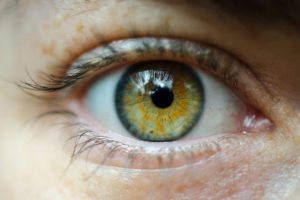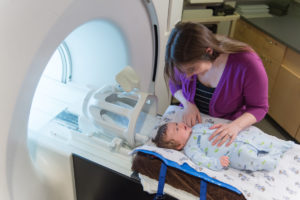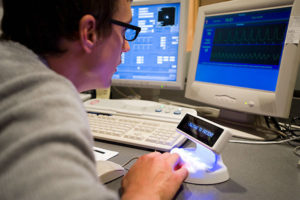In the United States, teens’ emotional health has declined significantly over the past two decades. Adolescents are more likely to develop mental health disorders compared to previous generations, and reports suggest anxiety rates have increased by 20 percent in youth and suicide hospitalizations have doubled. The teenage years are also vital for identity formation and instilling a sense of purpose – something with far-reaching impact later in life.
Seeking to understand the root causes of mental health challenges facing teens and leveraging decades of neuroscientific research, a team at Healthy Minds Innovations, an external nonprofit affiliated with the Center for Healthy Minds at the University of Wisconsin–Madison, is launching a research partnership to measure emotional well-being in teens and develop strategies to promote flourishing in this age group.
Supported by a $5 million grant from the Chan Zuckerberg Initiative (CZI) Donor Advised Fund, an advised fund of the Silicon Valley Community Foundation, the project will support the healthy development of skills such as connection, awareness, insight and purpose through the development of easy-to-use, mobile measures for adolescents.
In education, the Chan Zuckerberg Initiative’s mission is to ensure every young person enters adulthood with the skills and abilities they need to reach their full potential, and that every teacher is equipped with the tools and research they need to help get students there. CZI’s approach to getting there is defined by a focus on “whole child” outcomes, creating a tailored teaching and learning experience for each child, and informed by the latest science about how students and adults learn and develop.
The work to be supported is based on a framework for well-being that includes four core constituents: awareness, connection, insight and purpose – each of which can be trained and improved. There is a lack of robust measures on well-being, particularly in adolescents, and the first step toward developing interventions to improve people’s well-being is the creation of robust measures.
“...Our challenge as a research community has been taking what we know from the science and effectively scaling it in this population to really see what works in real-world scenarios.”
“We know from years of science that the teenage years are especially important for brain development and healthier mental and physical outcomes later in life,” says Richard Davidson, founder and president of Healthy Minds Innovations, which received the grant. “Our challenge as a research community has been taking what we know from the science and effectively scaling it in this population to really see what works in real-world scenarios.”
Specifically, the project will find different ways to measure awareness (e.g., the capacity to deploy attention voluntarily), connection (e.g., interpersonal qualities such as gratitude, appreciation, kindness and compassion that provide the glue for successful interpersonal interaction), insight (e.g., how self-concepts are constructed, what is a healthy and unhealthy sense of self) and purpose (e.g., sense of purpose).
For each area, the team will develop three unique methods to understand teens’ progress. One method includes questionnaires through which teens will answer short questions about their feelings and tendencies. Another method, experience sampling, will prompt teens to check in on what they’re doing in the moment and how they’re feeling. In addition, “gamified” behavioral tasks through which teens actively play a game or complete a task will also help track progress and support a more tailored approach to learning.
These tools will provide adolescents a resource to become more aware of their well-being and provide skills to help them navigate daily life with greater confidence.
Davidson says the project will expand researchers’ ability to obtain more objective measures to study youth well-being at scale, and that the measures, once developed, can be used to understand the effectiveness of mental health interventions in partnering schools and nonprofits leading work with youth.
Ultimately, the partnership will produce more tools that educators can use to improve mental health outcomes in teens.
-Marianne Spoon






